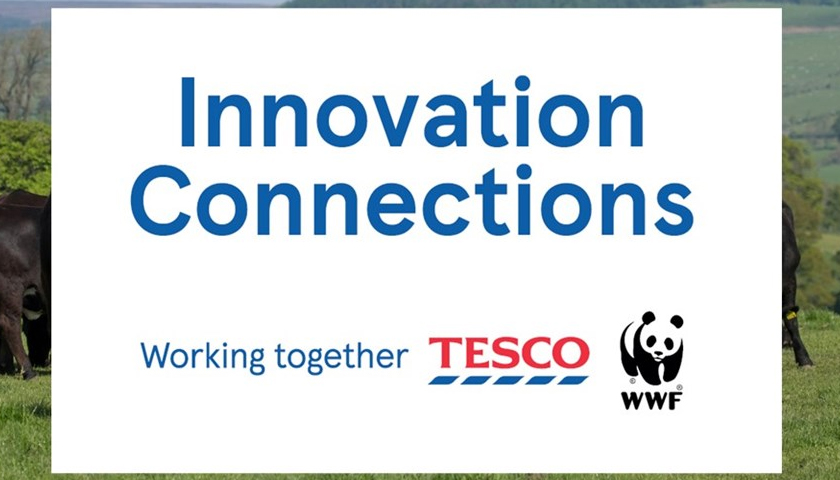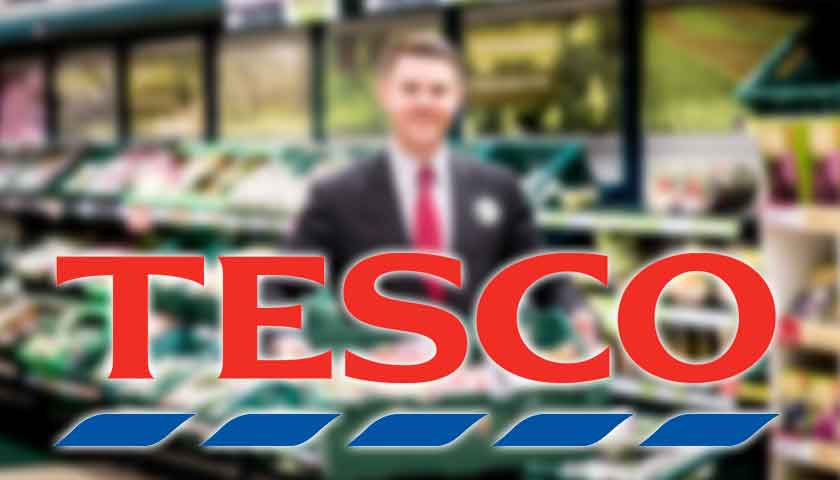Tesco and WWF have launched a new accelerator programme which pairs pioneering start-ups with Tesco suppliers to fast-track sustainability innovation in the supply chain which can cut the environmental impact of food and support UK food security.
Innovation Connections will address a key barrier preventing promising sustainability innovations from being adopted at scale in food supply chains, by identifying suppliers who can help to scale up new ideas and technologies. Applicants have been paired with long-term Tesco suppliers to pitch scale-up projects that apply their ideas in the real world of food supply chains. Winners will work with Tesco’s supplier partners to pilot and scale their innovation and will each receive up to £150,000 in funding support.
Ahead of the Innovation Connections finals, Tesco called on the UK government to do more to unlock innovation in UK food supply chains and support innovations to market readiness, not just at the seed funding stage.
Specifically, it is asking the Government to set out timelines and process for updating outdated regulations that hinder the scaling up of late-stage innovations such as insect protein in animal feed or sustainable low-carbon fertilisers, and to create incentives for businesses and consumers who are early adopters of new food system innovations.
Ken Murphy, Tesco Group CEO said:
“To deliver affordable, healthy and sustainable food for all, the entire food sector must innovate fast. That’s why, as well as driving improvements in our own operations, Tesco is collaborating with innovative suppliers and start-ups. But we also need government support, to help the food industry to scale proven innovations. The upcoming Food Strategy White Paper is a great opportunity to transform our food system and enhance food security. We hope the paper will set out a process to update outdated regulations that hinder the scaling up of much needed innovations.”
Tanya Steele, WWF CEO said:
“More than a quarter of all greenhouse gas emissions are driven by the way we produce and consume food, but it doesn’t have to be that way. It’s possible for farms to produce enough nutritious food and sustain farmers’ livelihoods at the same time as protecting and restoring the natural resources they depend on. We hope the launch of this new accelerator programme with Tesco will bring innovative solutions a step closer and help us achieve our goal of halving the environmental impacts of the average UK shopping basket.”
The following Innovation Connections finalists have been selected by Tesco and WWF experts from 70 applications. They will go head-to-head on Friday 6 May to pitch for the chance to see their project rolled out in the Tesco supply chain:
- AgriSound & AM Fresh (Tesco fruit supplier) – technology that uses bioacoustics to monitor pollinators and pest levels on farm to help farmers protect biodiversity and increase produce yields
- Aurea & Adrian Scripps (Tesco apple supplier)– full lifecycle crop intelligence for fruit trees that allows farmers to manage health and fruit-load for every tree individually, improving yields while minimising the use of inputs like fertiliser
- ai & Hilton (Tesco meat and fish supplier) – a monitoring system that uses birdsong as a science-based biodiversity indicator in grassland farming
- CCm, Andermatt, FCT & Branston (Tesco potato supplier) – a demonstration of low carbon fertilisers to reduce the carbon footprint of potato production
- FCT & ProduceWorld (Tesco produce supplier) – advanced carbon footprint software for horticultural growers to analyse and reduce their emissions and increase carbon sequestration on farm, whilst also identifying cost savings and efficiencies
- Future by Insects & Hilton (Tesco meat and fish supplier) – creation of circular fish feed using food waste to grow microalgae to feed fish.
- Harbro & Muller (Tesco milk processing supplier) – technology to precisely measure nutrient efficiency on dairy farms
- InsPro & Prepworld (Tesco prepared fruit supplier) – portable bioconversion units that use insects to convert food waste into chicken feed and reduce the use of soy feed in the egg supply chain


